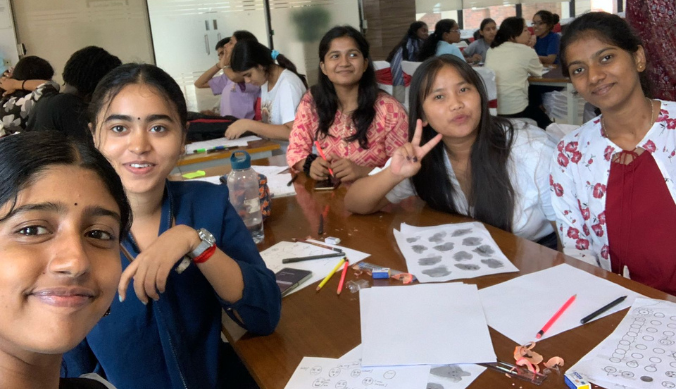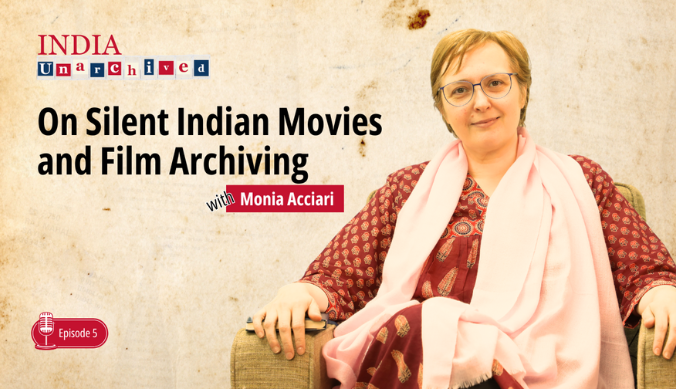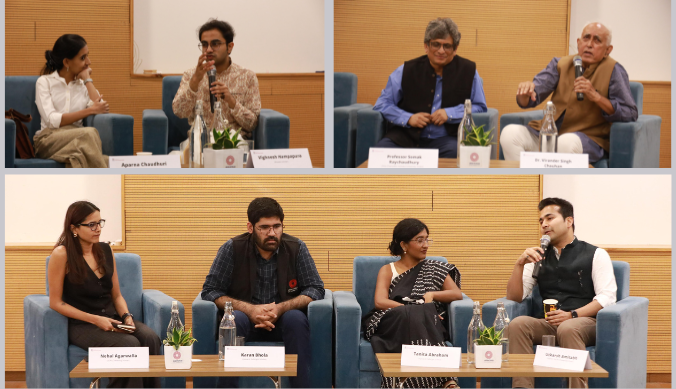Strategy Through Board Games: Learning With the Game of Bridge
Mehak Puri shares their experience of learning valuable entrepreneurial skills like decision-making and communication in the course “Strategy through Board Games”
The game of Bridge might seem like a dull and complicated pastime for older generations but don’t be fooled by its unassuming reputation. It’s not just a card game – it’s a whole new world that can teach you invaluable lessons about business strategy. The first session of this semester’s most offbeat offering, “Strategy through Board Games”, introduced a class full of twenty-somethings to this classic trick card game and its convoluted scoring.
The guest speaker for the session, Mr. Jaggy Shivdasani, brought his wealth of experience as one of India’s most successful Bridge players to the classroom. He rose to national prominence in 1976 when he won the prestigious Holkar Trophy and represented India in several international events, including the 1988 World Team Olympiad in Venice. He inspired the classroom with his strategic thinking skills and emphasised the importance of gathering information from various sources. In order to play and succeed in the game, players must collect and analyse a large amount of information to make informed decisions. This process is not unique to bridge alone; it is also an essential skill in the real world.
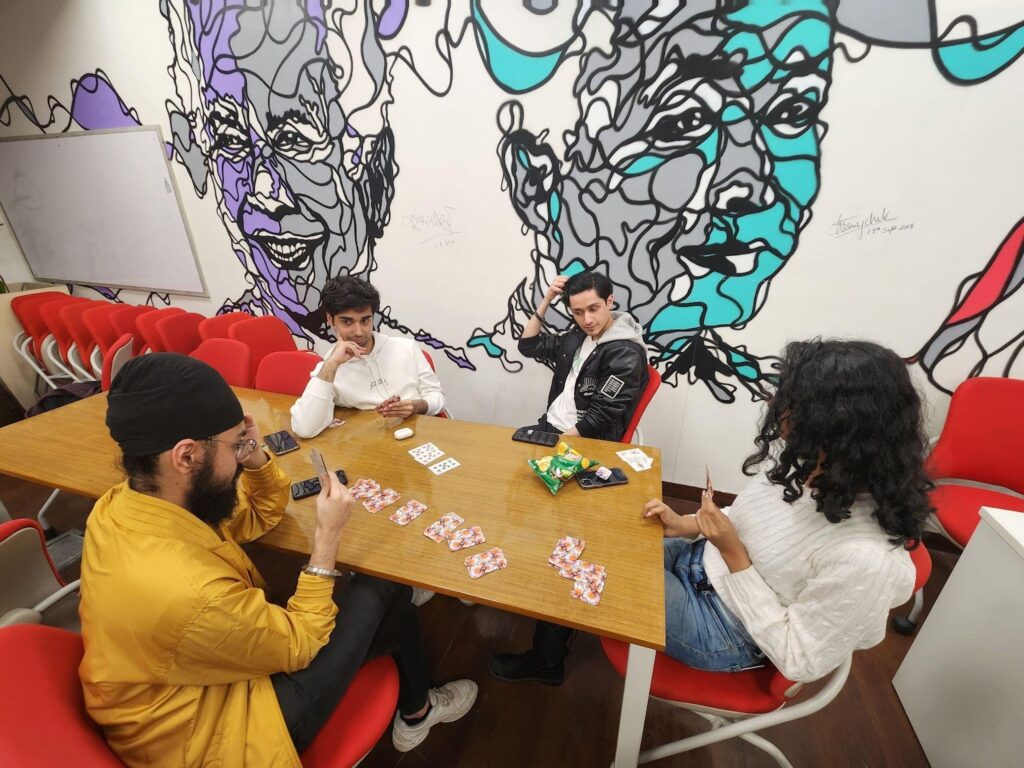
One must gather information on market trends, consumer preferences, and the industry at large to make informed decisions regarding their businesses and investments. Policy-making relies heavily on its arbitrators to make decisions after considering the social, economic, and political landscapes that they may affect. Most importantly, you’re always looking for information that points to red flags on a date- you don’t want to be paying for therapy at the end of things! By accumulating and analysing multiple chunks of information, individuals are better equipped to make the best decision possible. The downside to gathering this information is that it’s easy to become overwhelmed by the amount of information available. Bridge teaches its players the importance of simplifying and organising relevant information, especially in a day and age where the internet is throwing information at you every second. With the vast amount of information available, it’s crucial to simplify and organise it in a way that maximises efficiency, helping you make better decisions.
Communication is another essential skill that Bridge polishes. As a team game, communicating your strategy to your partner is vital since it enables you to pass maximum information to your teammates. The game teaches you to use suit preference signals and attitude signals to indicate information to your partner. Mr Shivdasani also spoke about the importance of body language throughout the game, not just with your partner but also with your opponents.
During the initial first games that I played, I struggled to memorise the tricks that had been made. Keeping track of the cards that have already been played helps in ensuring that your high card wins you a trick. I had to get practice with distribution, high card scores, and pattern recognition in addition to general counting. Post that, I got comfortable with continuously modifying my counts in light of fresh information from the bidding and play, which really impacted my performance. This game also requires you to be extremely patient- the rules are fairly complicated for a first-timer, but with practice and errors, my bridge skills did become better. An instance that stood out to me was how successful a solid partnership can prove to be. During a game, my opponents had very different skill sets which they used to their advantage. One was good with numbers and memorising cards, while the other made strategically calculated guesses. By using their personal strengths as one unit, they were able to meet their target.
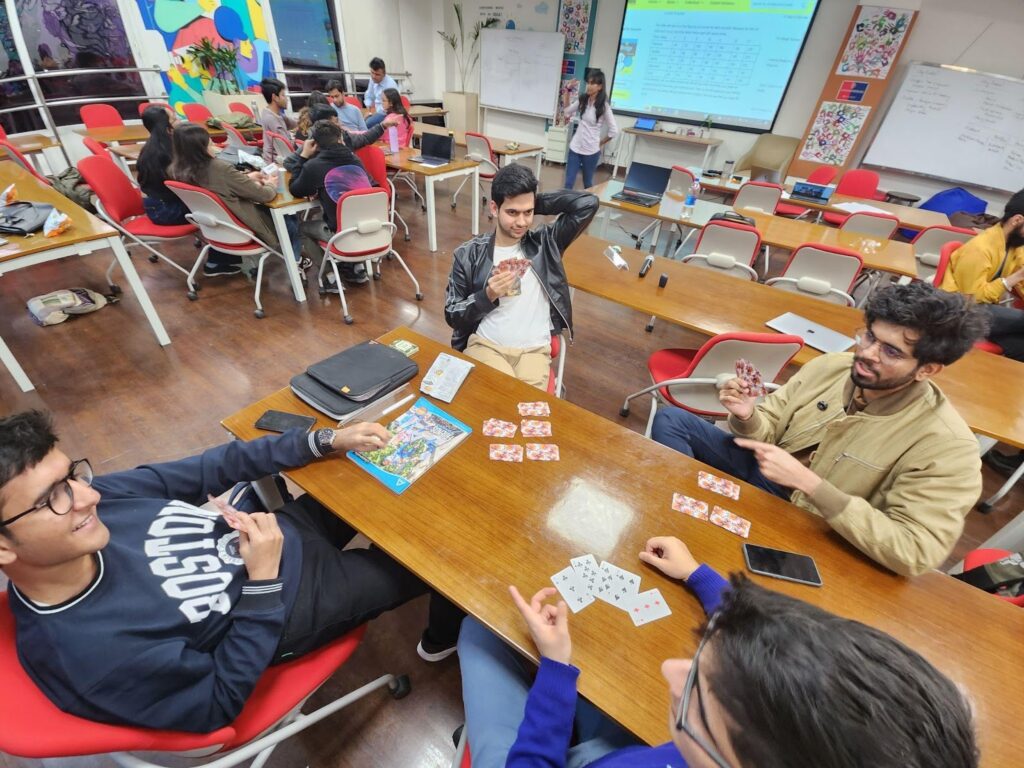
The game resembles a real-life business situation in many aspects. It simulates a situation of high risk/high reward and low risk/low reward as is seen in the real world. A good strategy, maximising limited information, strong partnerships, communication, and taking risks are all aspects of a successful business. The game helps you visualise yourself as a leader who needs to make quick decisions based on uncertainty and be ready for any new challenges that come your way.
Playing Bridge is similar to the process of effectuation that entrepreneurs use to build new ventures based on logical thinking. You’ll need to establish partnerships, weigh various profitable factors and make initial decisions with the cards and information available to you, minimising risk and maximising profits. These principles resonate with the principles of effectuation, which require entrepreneurs to make constant decisions based on new information and overcome various challenges that come their way in a dynamic manner.
In summary, playing Bridge is an excellent way to learn and master valuable skills such as decision-making, risk-taking, communication, and partnership-building. With the lessons learned from Bridge, students can apply these skills to real-life situations and become more effective and successful in their business strategy. So, if you want to improve your strategic thinking skills and learn the art of negotiation, it’s time to take a closer look at the classic game of Bridge.
Written by Mehak Puri (mehak.puri@alumni.ashoka.edu.in)
“Strategy Through Board Games” is a 2 credit course, first offered in Spring Semester 2023, that engaged students with the nuances and complexities of the real world by rooting them in more familiar and approachable methods of learning – board games! Board games are a great way to learn through interactive and engaging activities. They offer a fun and relaxed learning environment that promotes active participation and helps students retain information better.
Study at Ashoka










